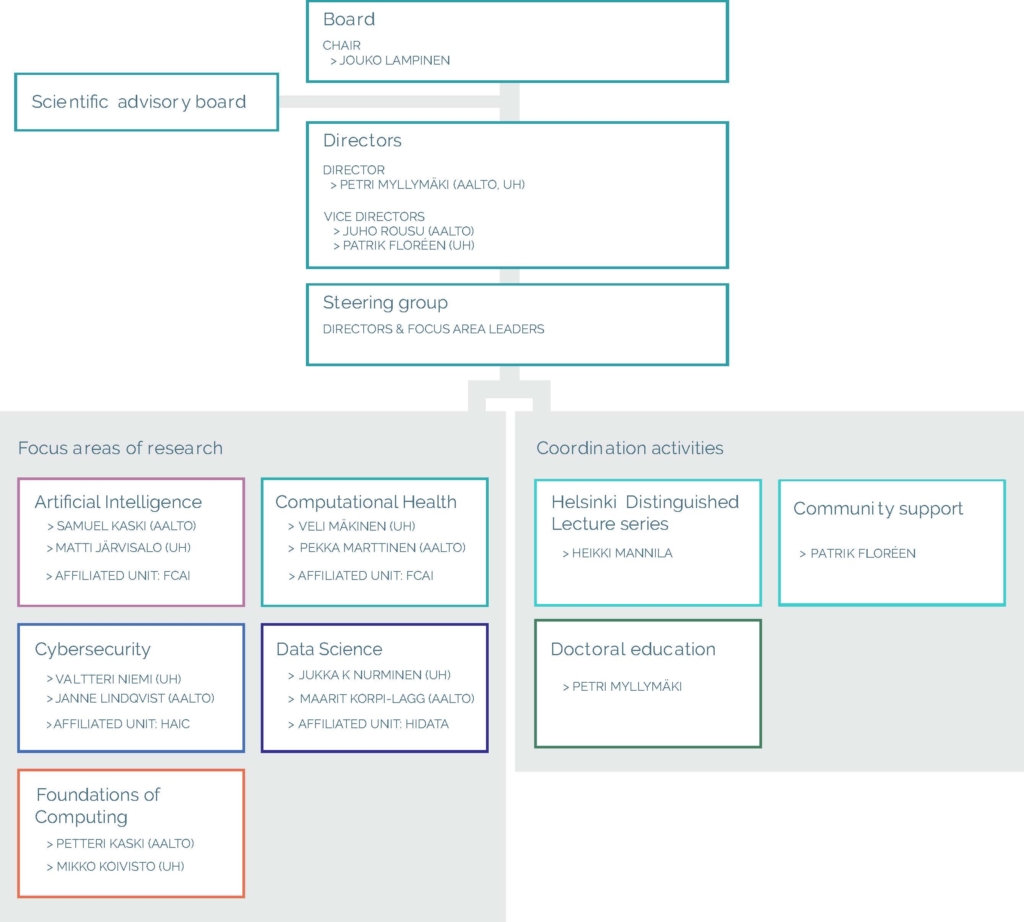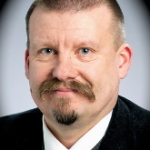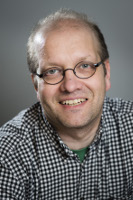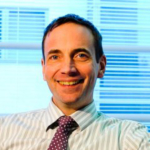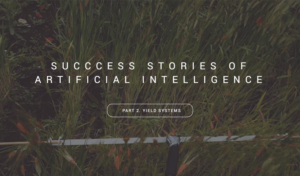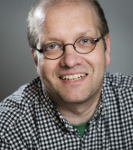HIIT research community
The research community consists of researchers working in the departments of Computer Science at Aalto and Helsinki; and in the department of Information and Communications Engineering at Aalto University.
In total, the Helsinki IT research community consists of approximately
What we do
Helsinki Institute for Information Technology HIIT is a strategic partnership of Aalto University and the University of Helsinki for information and communications technology research. Supporting both fundamental and applied IT research areas, our mission is to provide a launch pad for high-quality research that makes a difference in the real world.
We offer funding and other direct forms of support for research, impact, and collaboration for the Helsinki IT research community. We also organize IT research events, such as the Helsinki Distinguished Lectures.
The Helsinki IT research community consists of all researchers at the departments of
- Computer Science, University of Helsinki
- Computer Science (CS), Aalto University
- Information and Communications Engineering (DICE), Aalto University
Organization
HIIT operates at Aalto University in the Departments of Computer Science, Information and Communications Egineering (DICE) and the University of Helsinki Department of Computer Science.
Professor Petri Myllymäki leads the institute. The mother universities nominate a board which decides on HIIT’s overall research strategy. The Director, Vice-Directors and the Focus Area Directors constitute the Steering Group responsible for coordination and planning. The Steering Group makes most of HIIT’s funding decisions. Every five years, a Scientific Advisory Board (SAB) provides scientific guidance and suggestions for the Board. The regulations for HIIT can be found here.
Browse the members of our organization below.
The Scientific Advisory Board (SAB) of HIIT consists of internationally prominent scholars who are invited by the HIIT Board. The objective of the SAB is to provide critical guidance about HIIT’s research activities and to advise the HIIT Board on strategic planning for future research directions of HIIT. The SAB convenes once in approximately 4 years, last in 2020.
The Board, nominated by the mother universities, decides on HIIT’s overall research strategy.
Both parent universities appoint two academic members. In addition, they appoint together three members who are not employed by either university. One member is elected by HIIT personnel.
The HIIT Board also acts as the Board of FCAI.
The current HIIT Board serves from 1 April 2022 to 31 March 2026.
| Member | Personal deputy |
|---|---|
| Dean, Professor Jouko Lampinen, Aalto | Professor Peter Liljeroth, Aalto |
| Dean, Professor Sasu Tarkoma, UH | Professor Samuli Siltanen, UH |
| Assc. Professor Janne Lindqvist, Aalto | University Lecturer Lassi Haaranen, Aalto |
| Professor Jussi Kangasharju, UH | Professor Veli Mäkinen, UH |
| Executive Vice President Tua Huomo, VTT | Research Professor Heikki Ailisto, VTT |
| Chief Policy Adviser Mika Tuuliainen, Confederation of Finnish Industries | Executive Director Riikka Heikinheimo, Confederation of Finnish Industries |
| Head of New Technologies Erkki Ahola, Technology Industries of Finland | Director Ville Peltola, Technology Industries of Finland |
| Personnel representative: Assc. Professor Pekka Marttinen, Aalto | Research Fellow Alan Medlar, UH |
Director of HIIT, Professor Petri Myllymäki reports to the Board. The Secretary of the Board is HIIT’s Vice-Director Patrik Floréen.
Board Meeting Minutes are available here
The Steering Group makes most of the funding decisions by HIIT. The group is responsible of HIIT’s inter-programme coordination and planning of activities. The present members are as follows:
- Professor Petri Myllymäki, Director of HIIT
- Docent Patrik Floréen, Vice Director of HIIT
- Professor Juho Rousu, Vice Director of HIIT
- Professor Samuel Kaski, Focus Area Leader for AI, Director of FCAI
- Professor Veli Mäkinen, Focus Area Leader for Computational Health
- Professor Valtteri Niemi, Focus Area Leader for Cybersecurity, Research Director of HAIC
- Professor Jukka K Nurminen, Focus Area Leader for Data Science
- Professor Petteri Kaski, Focus Area Leader for Foundations of Computing
You can see when our monthly steering group meetings occur in our event calendar.
HIIT & FCAI SAB, 5-6 November 2020
- Nicolò Cesa-Bianchi, Chair, University of Milano, Italy
- Elisabeth André, University of Augsburg, Germany
- Jodi Forlizzi, Carnegie Mellon University, USA
- Seif Haridi, KTH, Sweden
- Sepp Hochreiter, Johannes Kepler University Linz, Austria
- Michael Mahoney, Department of Statistics, University of California at Berkeley, USA
- Doina Precup, McGill University, Montreal, Canada
- Wojciech Szpankowski, Purdue University, USA
HIIT SAB 2016:
- Professor John Shawe-Taylor, University College London, UK; Chairman of the SAB
- Professor Elisabeth André, University of Augsburg, Germany
- Professor Richard Durbin, Wellcome Trust Sanger Institute, UK
- Professor Jodi Forlizzi, Carnegie Mellon University, USA
- Professor Seif Haridi, Swedish Institute of Computer Science, Sweden
- Professor Michael Mahoney, University of California Berkeley, USA
- Professor Kari-Jouko Räihä, University of Tampere, Finland
- Professor Wojciech Szpankowski, Purdue University, USA
HIIT SAB 2012:
- Professor Randy Katz, University of California at Berkeley, Chairman of the SAB
- Professor Alberto Apostolico, Georgia Tech
- Professor Christos Faloutsos, Carnegie Mellon University
- Associate Professor Jodi Forlizzi, Carnegie Mellon University
- Professor Bengt Jonsson, Uppsala University
- Professor Martin Kersten, University of Amsterdam and CWI
- Professor Kari-Jouko Räihä, University of Tampere
- Professor Mart Saarma, University of Helsinki
- Professor John Shawe-Taylor, University College London
HIIT SAB 2008:
- Dr. Ross Anderson, University of Cambridge
- Professor Alberto Apostolico, Georgia Tech
- Professor Richard Buxbaum, University of California at Berkeley
- Professor Christos Faloutsos, Carnegie Mellon University
- Professor Bengt Jonsson, Uppsala University
- Professor Randy Katz, University of California at Berkeley
- Professor Martin Kersten, University of Amsterdam and CWI
- Professor Kari-Jouko Räihä, University of Tampere
- Professor Mart Saarma, University of Helsinki
- Professor Angela Sasse, University College London
- Professor John Shawe-Taylor, University of Southampton
- Professor Hal Varian, University of California at Berkeley
- Dr Martin Vingron, Max Planck Institute for Molecular Genetics
HIIT SAB 2004:
- Dr. Ross Anderson, University of Cambridge
- Professor Alberto Apostolico, Purdue University
- Professor Richard Buxbaum, University of California at Berkeley
- Professor Christos Faloutsos, Carnegie Mellon University
- Professor Randy Katz, University of California at Berkeley
- Professor Bengt Jonsson, Uppsala University
- Professor Martin Kersten, University of Amsterdam and CWI
- Professor Kari-Jouko Räihä, University of Tampere
- Professor Mart Saarma, University of Helsinki
- Professor John Shawe-Taylor, University of Southampton
- Professor Hal Varian, University of California at Berkeley
- Dr. Martin Vingron, Director, Max Planck Institute for Molecular Genetics
HIIT SAB 2003:
- Dr. Ross Anderson, University of Cambridge
- Professor Alberto Apostolico, Purdue University
- Professor Richard Buxbaum, University of California at Berkeley
- Professor Christos Faloutsos, Carnegie Mellon University
- Professor Randy Katz, University of California at Berkeley
- Professor Bengt Jonsson, Uppsala University
- Professor Martin Kersten, University of Amsterdam and CWI
- Professor Kari-Jouko Räihä, University of Tampere
- Professor Mart Saarma, University of Helsinki
- Professor John Shawe-Taylor, Royal Holloway, University of London
- Professor Hal Varian, University of California at Berkeley
- Dr. Martin Vingron, Director, Max Planck Institute for Molecular Genetics
High-quality IT research
In computer science, engineering, and telecommunications engineering research, Aalto University routinely stands among the top 10 in Europe and in the top 100 globally in various rankings (Read more: Aalto University: Rankings).
Overall, the University of Helsinki consistently ranks in the top 100 of international university rankings. In computer science, engineering, and telecommunications, University of Helsinki scores among the 130–300 top universities across different rankings (Read more: University of Helsinki: Rankings).
In the three departments that make up the Helsinki IT research community, a total of 1419 peer-reviewed articles were published in 2023. The research by Helsinki IT researchers has been assessed and deemed excellent by HIIT’s external Scientific Advisory Board, latest in 2020. Read a more detailed description of Helsinki IT publications in the HIIT Annual report 2023.
World class computing infrastructure
Extensive resources for demanding computational tasks are available in both universities as in-house services as well as via national partnerships. If you’d like to learn more about high-performance computing infrastructure available at each university, visit Aalto Scientific Computing or University of Helsinki IT for Science.
Both universities are part of the Finnish Grid and Cloud Infrastructure (FCGI). The FGCI research infrastructure provides effective decentralized computational capacity for all branches of science as well as industrial cooperation for the utilization of the newest grid and cloud technologies. Its goal is to combine resources from various parts of Finland into one broad platform for intensive, demanding computational tasks. FCGI is coordinated by the national academic computing center CSC.
Additionally, CSC provides supercomputer and cloud high-performance computing resources for Finnish IT research. In addition to other high-performance computing systems, CSC boasts one of the EuroHPC world-class supercomputers, LUMI, which started operating in 2021. LUMI is one of the most competitive and ecological supercomputers in the world.
Lifelong learning and education
The Department of Computer Science at University of Helsinki is an international pioneer in developing and using open online courses, and it aims at the democratization of learning and knowledge. The topics of the over 30 open online courses created at the department range from the basics of programming to cybersecurity and artificial intelligence. The best-known of these courses, Elements of AI, is the most popular AI course in the world, with over one million students from over 170 countries.
Aalto University has a leading role in FITech, a national engineering online education network. In addition to offering hundreds of online units for degree students, FITech has a growing selection of open online courses in areas including software development, business studies, and data analytics.
Collaboration and commercial applications
In recent years, Finland has grown its thriving startup ecosystem. Helsinki globally ranks number one in local connectedness among founders, investors and experts. The world’s leading startup event Slush also takes place in Helsinki.
Startup Genome has identified the Helsinki area as one of the most significant AI ecosystems in Europe along with London and Berlin. In 2019, startups and growth companies raised a new record amount, totaling €511 million. Overall, Finland attracts the most venture capital per capita in Europe.
Both universities have established support platforms for research spin-offs, and the governmental Business Finland’s Research to Business funding program offers additional resources for commercializing research (see Business Finland: Research to Business funding).
The plant breeding startup Yield Systems is a great example of a spin-off stemming from Helsinki IT research. The startup has its roots in fundamental machine learning, applying these methods in order to optimize greenhouse and crop conditions. Watch our feature about Yield Systems:
In information technology, Aalto University and University of Helsinki have well-established partnerships with businesses such as Nokia, Intel, Konecranes, NVIDIA, Huawei, F-Secure and Nixu. Partnership activities include shared research projects and larger programs, co-teaching, and infrastructure collaboration.
Read more
Aalto University: Corporate collaboration
Business Finland: Research to Business funding
Aalto University Startup Center
University of Helsinki: Helsinki Innovation Services
AND ACTION: Impact and Business Collaboration Services for Researchers, University of Helsinki
NewCo Helsinki: Support for startups in Helsinki, sponsored by the city of Helsinki
HIIT is funded by Aalto University, the University of Helsinki, Business Finland, the Academy of Finland, the European Union, private companies, and foundations financing Finnish high-tech research. The research by Helsinki IT researchers has been assessed and deemed excellent by HIIT’s Scientific Advisory Board, latest in 2020. To read more on the structure, funding and activities of HIIT in the past years, delve into our annual report archive!
